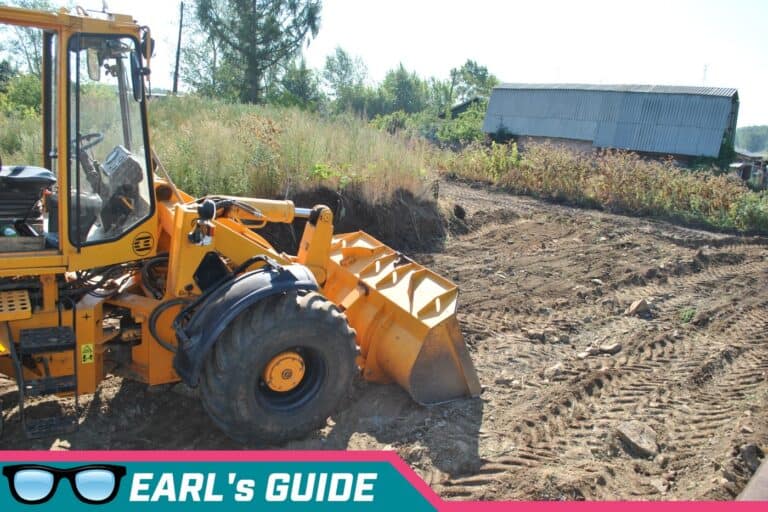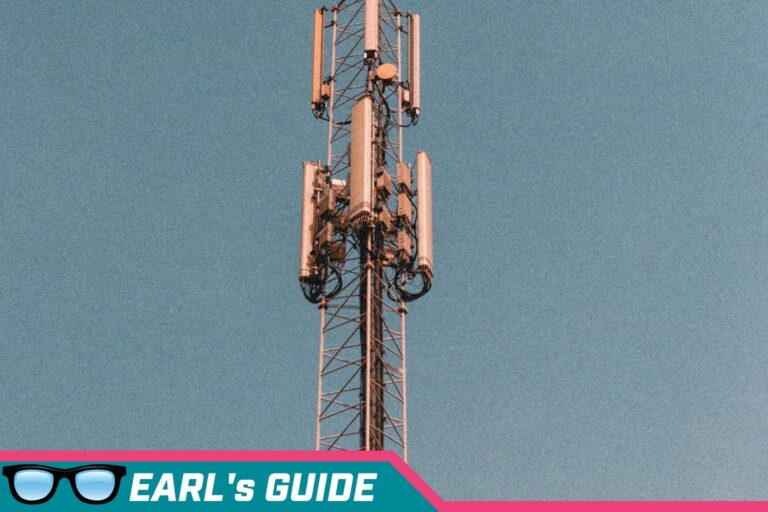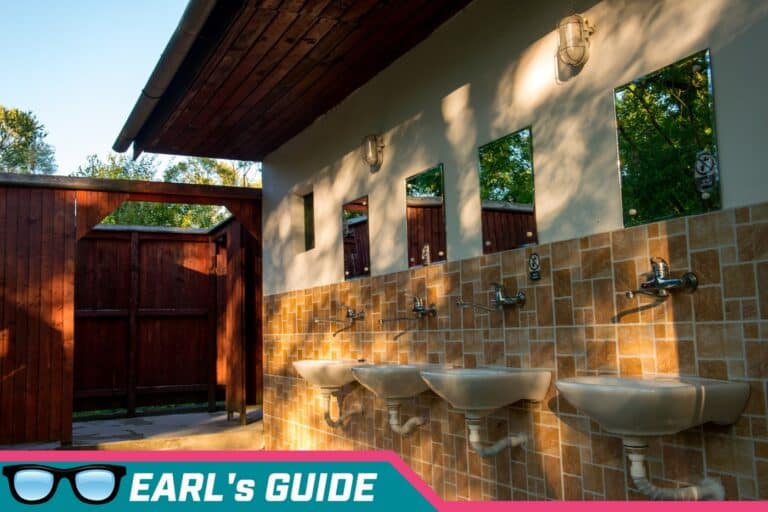Running a successful RV park is no small feat. Beyond the picturesque sites and amenities that attract vacationers and travelers, there is a crucial and often understated foundation: maintenance. Regular maintenance, ranging from electrical connections to restroom facilities, ensures not only the satisfaction and safety of your guests but also the longevity and profitability of your establishment. For RV park owners and managers, understanding this importance can’t be understated.
1. Ensuring Safety First
Electrical Connections
RV parks, by nature, rely heavily on electricity. As your visitors pull in, they expect to easily connect to your power sources without a hitch. However, without regular checks, these power sources can become safety hazards.
- Prevention of Fires: Faulty electrical connections are one of the leading causes of fires in RV parks. By routinely inspecting and maintaining these connections, park owners can significantly reduce the risk of fire hazards.
- Avoiding Electrocution: Damaged or exposed wires pose a significant risk of electrocution to both staff and guests. Regular checks ensure that connections remain safe to touch and use.
Restroom Facilities
Sanitation and hygiene are paramount. Your restrooms can either uplift the park’s image or severely tarnish it.
- Preventing Slips and Falls: Wet floors, if not attended to promptly, can become slip hazards. Regular cleaning and maintenance reduce this risk.
- Avoiding Health Hazards: Without routine cleaning, restrooms can quickly become breeding grounds for harmful bacteria and pathogens.
2. Boosting Guest Satisfaction
Consistent Power Supply
Imagine a guest settling in for the night and their RV’s power goes out. Frustration ensues. Regularly maintained electrical connections ensure a consistent power supply, making your guests’ stay comfortable and free from avoidable inconveniences.
Clean Restrooms Speak Volumes
Clean and well-maintained restrooms indicate a high level of care and professionalism. Guests value cleanliness, and when a park provides pristine facilities, it greatly enhances the overall guest experience.
3. Prolonging Infrastructure Lifespan
Preserving Electrical Infrastructure
Frequent checks and upkeep of electrical systems not only ensure safety but also prolong the lifespan of your equipment. This means fewer replacements, repairs, and unplanned costs in the long run.
Maintaining Restroom Facilities
By addressing minor issues as they arise — be it a leaking faucet or a cracked tile — park owners prevent larger, more costly problems in the future. Restrooms that are well-taken care of last longer and require fewer overhauls.
4. Safeguarding Your Reputation
In the age of online reviews and instant feedback, the reputation of your RV park is paramount. A single negative review about a power outage or unsanitary restroom can deter potential visitors.
- Positive Reviews Boost Business: A well-maintained park often translates to positive reviews. Happy guests share their experiences, and their word of mouth can significantly boost your business.
- Avoiding Negative Publicity: Addressing maintenance issues proactively can save your establishment from facing severe backlash online.
5. Cost Efficiency in the Long Run
It might seem counterintuitive to some, but spending on regular maintenance often saves money. Addressing issues when they’re small is more cost-effective than waiting for them to escalate into bigger, more expensive problems. The initial investment in routine checks and upkeep can prevent hefty repair bills in the future.
The Economics of Maintenance: Investing Now to Save Later
In any business venture, the concept of maintaining assets is often overshadowed by the allure of newer and better upgrades. But for savvy business owners, especially in sectors with significant infrastructure such as RV parks, real estate, or manufacturing, understanding the economics of maintenance is pivotal. The truth is straightforward: regular maintenance may seem like a recurrent cost, but it pales in comparison to the expense of replacement when systems or facilities break down.
Understanding Depreciation and Wear and Tear
Every asset, be it an electrical system in an RV park, machinery in a factory, or even software in a tech company, undergoes depreciation. Over time, wear and tear are inevitable. While depreciation is an accounting term, the physical manifestation of it is the gradual decline in the efficiency and functionality of assets. Without regular upkeep, this decline accelerates, leading to premature failures.
The Cost Differential: Maintenance vs. Replacement
Let’s break down the financial implications of regular maintenance versus the cost of replacement.
- Immediate Costs: Maintenance, especially when scheduled and routine, can be budgeted for. Replacements, on the other hand, are often unexpected and can be a financial shock. Replacing a major system or facility usually costs several times more than maintaining it over its lifetime.
- Operational Downtime: When a system breaks down, the downtime isn’t just about the replacement. It also affects operations, leading to revenue losses. Maintenance, when scheduled, can be planned during off-peak hours, minimizing disruptions.
- Efficiency and Energy Savings: Well-maintained systems run more efficiently. For instance, an electrical system that’s regularly checked and maintained will consume power more efficiently than one that’s deteriorating. Over time, the energy savings can be substantial.
- Longevity of Assets: Regular maintenance extends the life of assets. This means that instead of replacing machinery or systems every few years, with proper care, they can last much longer, providing a better return on investment.
- Resale Value: For assets that have a resale market, well-maintained ones fetch a better price. Buyers often ask for maintenance logs or records to ascertain the condition.
The Hidden Costs of Replacement
Beyond the direct costs of purchasing new equipment or systems, replacements come with hidden costs. These include:
- Training: New systems might require staff training, which is both time-consuming and costly.
- Integration: New installations often have teething problems. They need to be integrated with existing systems, and this process isn’t always smooth.
- Disposal: Out with the old, but at what cost? Disposing of old equipment, especially if it contains hazardous materials, can be expensive.
A Proactive Approach: Predictive and Preventive Maintenance
The modern solution to maintenance isn’t just being reactive but also predictive. With the rise of technologies such as the Internet of Things (IoT) and predictive analytics, it’s now possible to forecast when a system is likely to fail. This approach, combined with regular preventive maintenance, ensures that assets remain in peak condition for longer, further driving down the need for replacements.
While it’s easy to perceive maintenance as a mundane, recurring cost, in the larger financial landscape, it’s a significant cost-saving strategy. The investment in regular upkeep not only ensures the smooth running of operations but also staves off the exorbitant costs associated with replacements and the hidden expenses that come with them. For businesses, a little investment in maintenance today can save a significant financial burden tomorrow.
Decoding RV Camper Reviews: The Importance of Maintenance and Value
Today’s RV camper is more discerning than ever. Equipped with a plethora of online platforms and a strong community of fellow travelers, their reviews hold significant power in influencing the perception of an RV park. While explicit criticisms are straightforward, understanding implicit feedback is equally crucial. Modern campers might not always outrightly mention “lack of maintenance” or “poor value for money,” but by reading between the lines, RV park owners and managers can uncover invaluable insights.
The Dated and Unkept Park Perception
When an RV camper points out that a park feels “dated” or “unkept,” it’s often a polite way of highlighting neglected maintenance. Here’s what they might be noticing:
- Aging Infrastructure: Fading paint, crumbling pathways, or rusting equipment indicate that the park hasn’t seen upgrades in a while.
- Landscape Neglect: Overgrown shrubs, untrimmed grass, and unkempt green areas might suggest a lack of regular gardening and landscaping maintenance.
- Facility Wear and Tear: Restrooms with chipped tiles, malfunctioning lights, or persistent water leaks all hint towards a lack of consistent upkeep.
The High Price Perception
When campers comment that the “price was too high,” it’s not always about the absolute dollar amount. It’s more about the perceived value. A high-priced park with impeccable maintenance and modern amenities can be seen as value-for-money, while a neglected park, even if cheaper, can feel overpriced.
Here’s what might trigger such feedback:
- Comparative Value: Modern campers often compare facilities. If nearby parks offer better amenities and maintenance at a similar price, it highlights the gap in value.
- Mismatched Expectations: High prices often set high expectations. If the park doesn’t deliver on facilities, cleanliness, and maintenance, the price will naturally feel unjustified.
Comparative Value in the Eyes of the Widespread RV Camper
In the age of extensive travel and expansive experiences, RV campers carry with them a rich tapestry of memories and benchmarks from across the nation. When they evaluate the offerings of an RV park, they’re not just comparing it to the neighboring facility down the road, but to a diverse range of experiences they’ve gathered from coast to coast. Whether it’s the serene lakeside camp in the Pacific Northwest, the desert haven in Arizona, or that picturesque spot by the Rockies, each of these stays has set a precedent in their minds. The amenities, the quality of maintenance, the warmth of reception – all these factors from disparate geographies contribute to their perception of value. For RV park owners and managers, this means the competition is broader and the standards are higher. It’s a call to rise above local standards and aim for a national or even global benchmark, offering guests an experience that stands tall not just in the locale, but across the vast landscapes that RV campers traverse.
Taking Proactive Measures
For RV park owners and managers, these subtle reviews offer an opportunity, not a critique. Here are steps to address and improve:
- Regular Maintenance Checks: Schedule routine checks for all facilities. Investing in preventive maintenance can significantly uplift the overall ambiance and functionality of the park.
- Benchmarking: Regularly assess competitors. Knowing what others in the vicinity offer can help align pricing strategies and highlight areas of improvement.
- Engage with the Community: Responding to online reviews and seeking feedback during stays can offer direct insights. Sometimes, open dialogue can clarify what “dated” or “overpriced” means to different campers.
- Value Additions: If price points are higher due to location, exclusivity, or other factors, consider adding value through freebies, loyalty programs, or unique experiences that justify the cost.
- Transparent Communication: If certain amenities are under repair or renovation, communicate this proactively. It manages expectations and reduces the chances of negative feedback.
In the age of online reviews, every feedback, explicit or implicit, is a goldmine of insights for RV park owners. It’s less about defending the park’s current state and more about continuously evolving to match the expectations of the modern camper. After all, the goal is to provide an experience where the value feels justified, and the park feels like a well-maintained home away from home.
In Conclusion
Maintenance, in its essence, is the backbone of a thriving RV park. From ensuring the safety and satisfaction of guests to prolonging the life of your infrastructure and safeguarding your park’s reputation, the benefits are manifold.
For RV park owners and managers, it’s crucial to understand that the success of your establishment doesn’t solely lie in the attractions you offer but in the meticulous attention to detail behind the scenes. Embracing a culture of regular maintenance not only promises a safe and satisfying experience for your guests but also guarantees the longevity and prosperity of your business.

Robert Earl
Robert EarlRobert has 20+ years of experience as a Real Estate Agent, Coach, Digital Marketer & Author, coupled with a unique expertise in professional RV Park Management. His time as an RV Park Manager has been marked by a strong ability to increase campground occupancy and revenue through strategic management and targeted marketing efforts. His dual career in online marketing and RV Park Management provides a rich perspective on success in diverse fields. Robert Earl is passionate about teaching and empowering others to pursue their dreams and create sustainable income. Whether through a career in real estate, affiliate marketing, niche blogging, or transforming campgrounds into thriving communities, his proven strategies and techniques have helped numerous individuals and businesses succeed. Based on his years of experience and knowledge in the online marketing industry, along with his hands-on management in the RV Park sector, he has crafted a unique and effective approach to personal and professional growth. In addition to his business pursuits, Robert is also a CrossFit Online Level 1 Trainer (CF-OL1) and enjoys fitness activities, including Rucking workouts while traveling the country. His multifaceted career showcases his dedication to growth, innovation, and the pursuit of excellence in various domains.






